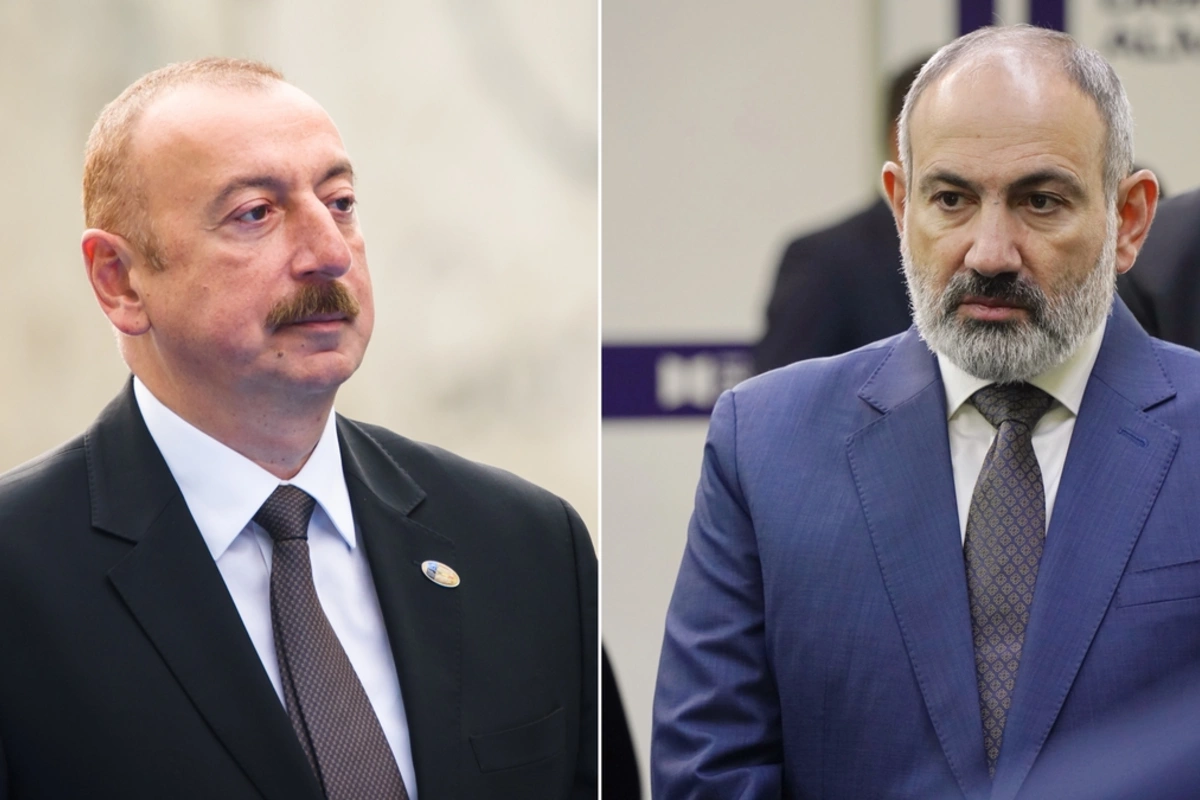
After negotiations between Armenia and Azerbaijan through various facilitated or mediated foreign platforms faltered, Baku has invited Yerevan to meet on the shared border between the two neighbouring countries for unmediated bilateral talks.
Image: Gints Ivuskans, Vladimir Tretyakov - Shutterstock
Armenia has accepted an offer from Azerbaijan to re-engage in talks to end their decades-long conflict. Discussions appeared to have collapsed in October when Baku rejected talks facilitated by the European Union in Granada and Brussels. Azerbaijan had become increasingly frustrated with the process to date, perceiving France—and the EU in general—as being biased towards Armenia and sensing that Yerevan might be delaying finalizing an agreement.
Baku made the offer to continue bilateral meetings away from Washington D.C., Brussels, and other European capitals on 21 November by suggesting that unmediated meetings should take place on the border or at a “mutually acceptable venue,” possibly elsewhere in the region. “We believe that the two countries should decide the future of their relations together,” the Azerbaijani Foreign Ministry said.
Yerevan responded the following day with a somewhat confused message saying that it was unclear which officials Baku meant but offered to hold another involving the border commissions from both countries.
However, the format for commission meetings had already been mostly bilateral and included two border meetings on the boundary between the countries from four held to date. At the last such meeting in July, it had already been agreed that in the future they would all be held on the border. Nonetheless, later that evening Caliber.Az reported that Baku accepted Yerevan’s response, something that the Armenian Foreign Ministry confirmed the next day.
The meeting should take place at the end of November.
Nonetheless, the recent to-and-fro continues to not only represent a breakdown in communications between the sides but also trust. Baku especially sees the EU and U.S. formats as supporting Yerevan’s position. Armenia considers that it needs such support when dealing with a more powerful adversary in the region. This feeling has only increased in the weeks following Baku’s 19 September operation in Karabakh.
Moreover, the offer came only after Azerbaijan pulled out of U.S.-facilitated talks in Washington D.C. that were reportedly scheduled for 20 November. Baku charges that in a House Committee Hearing on Karabakh, U.S. Assistant Secretary of State James O’Brien overstepped the mark by announcing that the Biden administration had cancelled high-level bilateral meetings in Baku.
The same day, the U.S. Senate adopted the Armenian Protection Act. That is a bill which prevents the U.S. administration from renewing the annual waiver to section 907 of the Freedom Support Act. The latter was a U.S. law introduced due to the Armenian-American lobbying in 1992 aimed to prevent military assistance to Baku during the First Karabakh War. Widely seen as unfair, the law was never repealed but a waiver was introduced in 2001 to allow Azerbaijan to assist the U.S. in its War on Terror following the 9/11 attacks by al-Qaeda. The waiver has been nodded through every year since then, a formality that will now be prevented by the new act.
Baku did not take kindly to either move. “Such a unilateral approach […] could lead to the loss of the mediation role of the United States,” the Azerbaijani Ministry of Foreign Affairs stated, calling them “a blow to Azerbaijan-U.S. relations in bilateral and multilateral formats.”
With both the U.S. and EU platforms still in doubt, though Baku says it has not left the Brussels Process, this leaves a large shadow hanging over Western-facilitated talks.
This especially came to a head when Paris inked an arms deal to supply military equipment to Yerevan at the end of last month. Around 21 French Bastion Armored Personnel Carriers were delivered to Armenia via Georgia in early November. Some Azerbaijani analysts warn that this sets a dangerous precedent in the region.
But with the end of the year approaching, it remains unclear whether a long-anticipated agreement between the sides can be reached unless something drastically changes. Though Baku says that a final agreement is in sight, something also stated by Yerevan officially at least, consensus nevertheless seems to be that it no longer needs a deal as urgently as it had before.
It remains unclear what might happen next, with Yerevan also referring to the agreement to meet on the border as ‘preliminary’ while also still favouring Brussels as a venue for higher-level talks, but it could be a potentially positive first step.
Share on social media